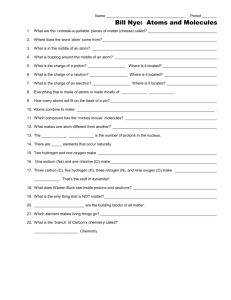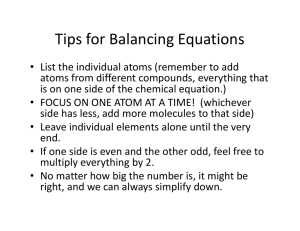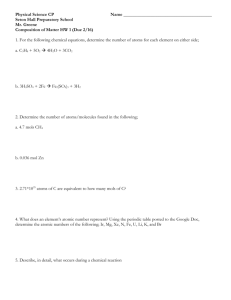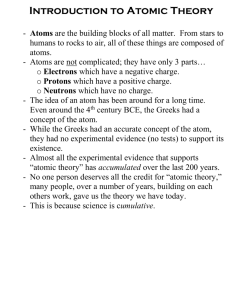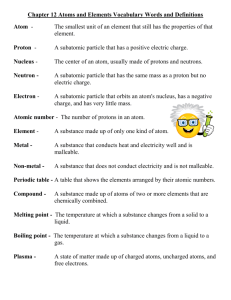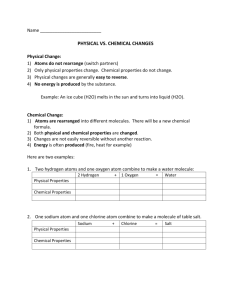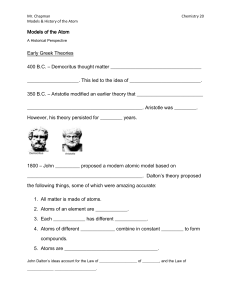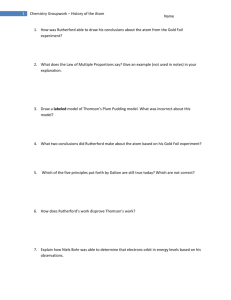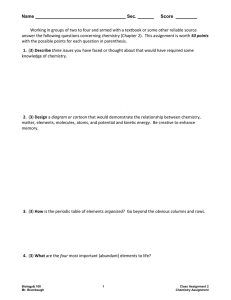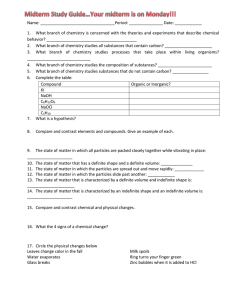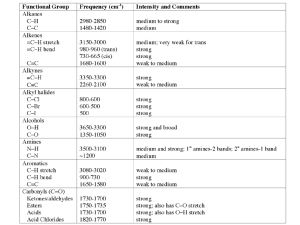Chemistry Test Chapter 3: Atomic Structure & Moles
advertisement
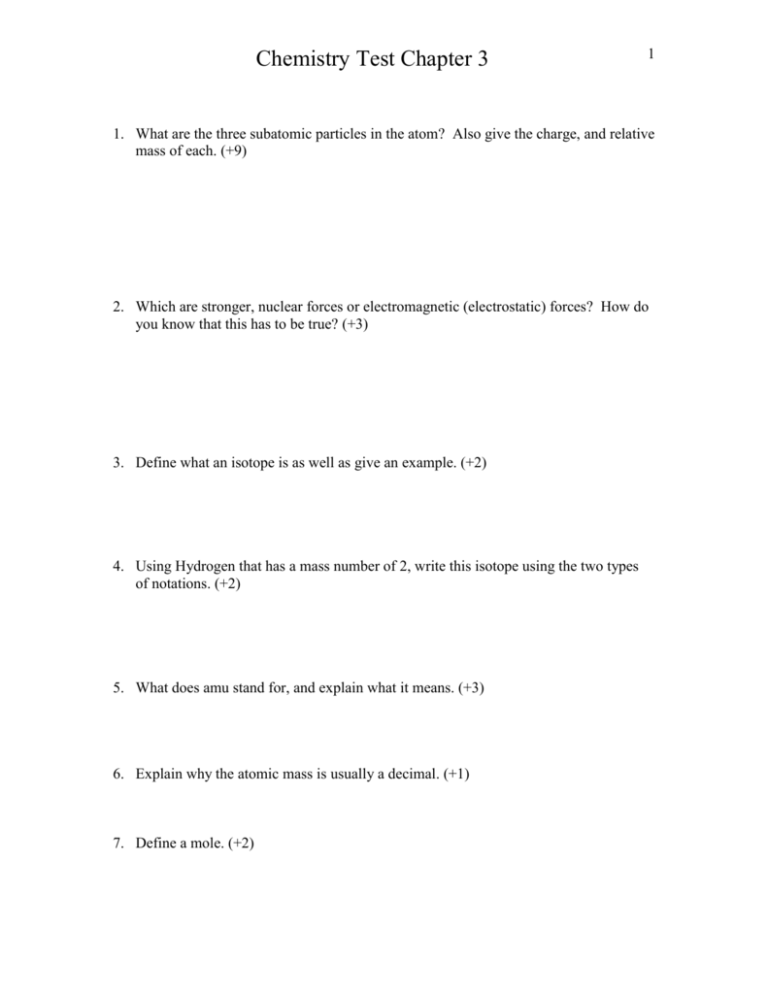
Chemistry Test Chapter 3 1 1. What are the three subatomic particles in the atom? Also give the charge, and relative mass of each. (+9) 2. Which are stronger, nuclear forces or electromagnetic (electrostatic) forces? How do you know that this has to be true? (+3) 3. Define what an isotope is as well as give an example. (+2) 4. Using Hydrogen that has a mass number of 2, write this isotope using the two types of notations. (+2) 5. What does amu stand for, and explain what it means. (+3) 6. Explain why the atomic mass is usually a decimal. (+1) 7. Define a mole. (+2) Chemistry Test Chapter 3 8. What is molar mass, and how would you find/calculate it? (+3) 9. Explain Rutherford’s experiment, and tell what two things it reveals about the structure of an atom. (+8) 10. How many protons, electrons, and neutrons are in bromine-80? (+3) 11. Name the positive charge in the atom. Name the negative charge in the atom. (+2) 2 Chemistry Test Chapter 3 12. What is the mass of 1.38 mol of N? (+3) 13. Convert 150 g of S to mols of S. (+3) 14. How many mols are in 2.25 X 1025 atoms of Zinc? (+3) 15. What is the mass in grams of 4.50 X 1012 atoms of Chlorine? (+3) 16. How many atoms are in 1.50 g of K? (+3) 3
